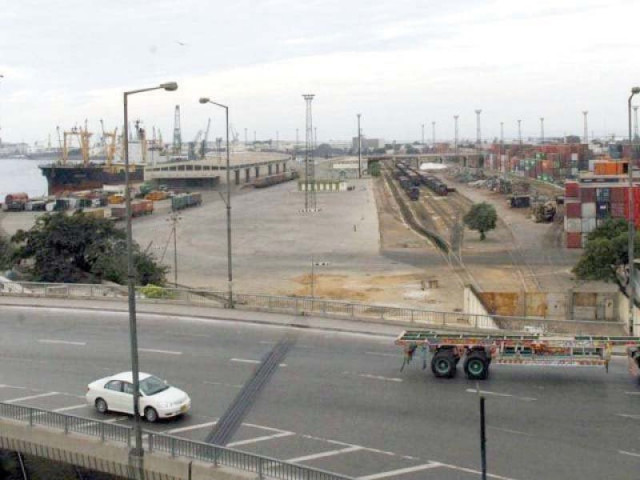Due to delay, Centre plans to take over development of economic zones
Slow progress on SEZs under CPEC has frustrated the Chinese

A Pakistani delegation comprising officials of the planning ministry, BOI, National Highway Authority and EAD will leave for China next week to make efforts to keep the CPEC momentum and spirit intact. PHOTO: FILE
In addition, the government is also facing financial challenges that may further delay some critical infrastructure projects of CPEC including the $8.2-billion Main Line-I of the Pakistan Railways.
China wants to downgrade ML-I from the earlier status of ‘strategic project’, which will lead to a change in terms of loans, according to sources. Issues hampering implementation of the $2-billion Karachi Circular Railway (KCR) project also remain unresolved.
Muddled World Bank report: Pakistan ‘needs’ $31b this year to stay afloat
The progress at a snail’s pace on the prioritised SEZs, which have been planned to deepen bilateral economic cooperation, had disturbed Chinese authorities and the government wanted to save the projects, said sources in the Ministry of Planning, Development and Reform.
The economic zones were planned to attract sunset Chinese industries, but for the past one year, things could not move forward, they added.
In a bid to address these issues, a Pakistani delegation comprising officials of the planning ministry, Board of Investment (BOI), National Highway Authority and Economic Affairs Division (EAD) will leave for China next week. Their purpose is to make efforts to keep the CPEC momentum and spirit intact.
Before their departure, the Cabinet Committee on CPEC met under the chairmanship of Prime Minister Shahid Khaqan Abbasi on Friday. According to sources, the premier gave the go-ahead to the BOI for conducting a feasibility study to take over control of the prioritised SEZs and submission of its report at the earliest.
A decision on taking over these zones would be based on the BOI report and feedback from the delegation visiting China.
According to the initial proposal, the federal government will develop those SEZs that suit both China and Pakistan. Their income will be shared with the respective provincial governments.
However, it is not yet clear whether the provinces will accept such a proposal that undermines their role. Planning Minister Ahsan Iqbal was not available for comments.
The main bone of contention is the SEZ construction site in Khyber-Pakhtunkhwa. Till last month, the provincial government had been pushing for the Rashakai industrial zone, which is on CPEC’s western alignment.
For strategic and economic reasons, the Chinese want to develop those SEZs that fall on the eastern alignment or are situated in its proximity.
Chinese experts have conveyed that the Dhabeji Industrial Park in Thatta, Hattar Industrial Estate-II in Khyber-Pakhtunkhwa and M3 Faisalabad have more advantages than other proposed sites, according to minutes of the seventh CPEC Joint Cooperation Committee (JCC) meeting.
On January 3, the provincial authorities signed an engagement agreement with China Road and Bridge Corporation for development of the Hattar zone, which may permanently push back the Rashakai SEZ.
The prime minister directed that the Chinese should be engaged for speedy establishment of the prioritized SEZs, said a statement issued by the PM’s Office on Friday.
The premier said various factors including connectivity, availability of human resources and requisite raw material should also be taken into account while prioritising the zones.
He said that besides expediting work on ongoing projects, modalities for mutually-agreed future projects should be finalised in consultation with the Chinese side to ensure timely implementation.
Infrastructure projects
There were also hurdles in the way of implementing two western route road projects that were falling behind schedule and one northern link leading to eastern alignment.
Financial arrangements for these projects had not been finalised, said sources. EAD officials would take up the issue with the Chinese authorities next week. The main problem was with financing for the $8.2-billion ML-I project.
World Bank puts $250m policy loan for Pakistan on hold
In the meantime, the Sindh government has expressed apprehensions about the selection of a company for the construction of Karachi Circular Railway. So far, the CPEC infrastructure projects are being implemented by Chinese companies that are nominated by their government.
The Sindh government wants to pick its own company, which may not necessarily be among the panel of three Chinese companies.
Published in The Express Tribune, January 14th, 2018.
Like Business on Facebook, follow @TribuneBiz on Twitter to stay informed and join in the conversation.



















COMMENTS
Comments are moderated and generally will be posted if they are on-topic and not abusive.
For more information, please see our Comments FAQ